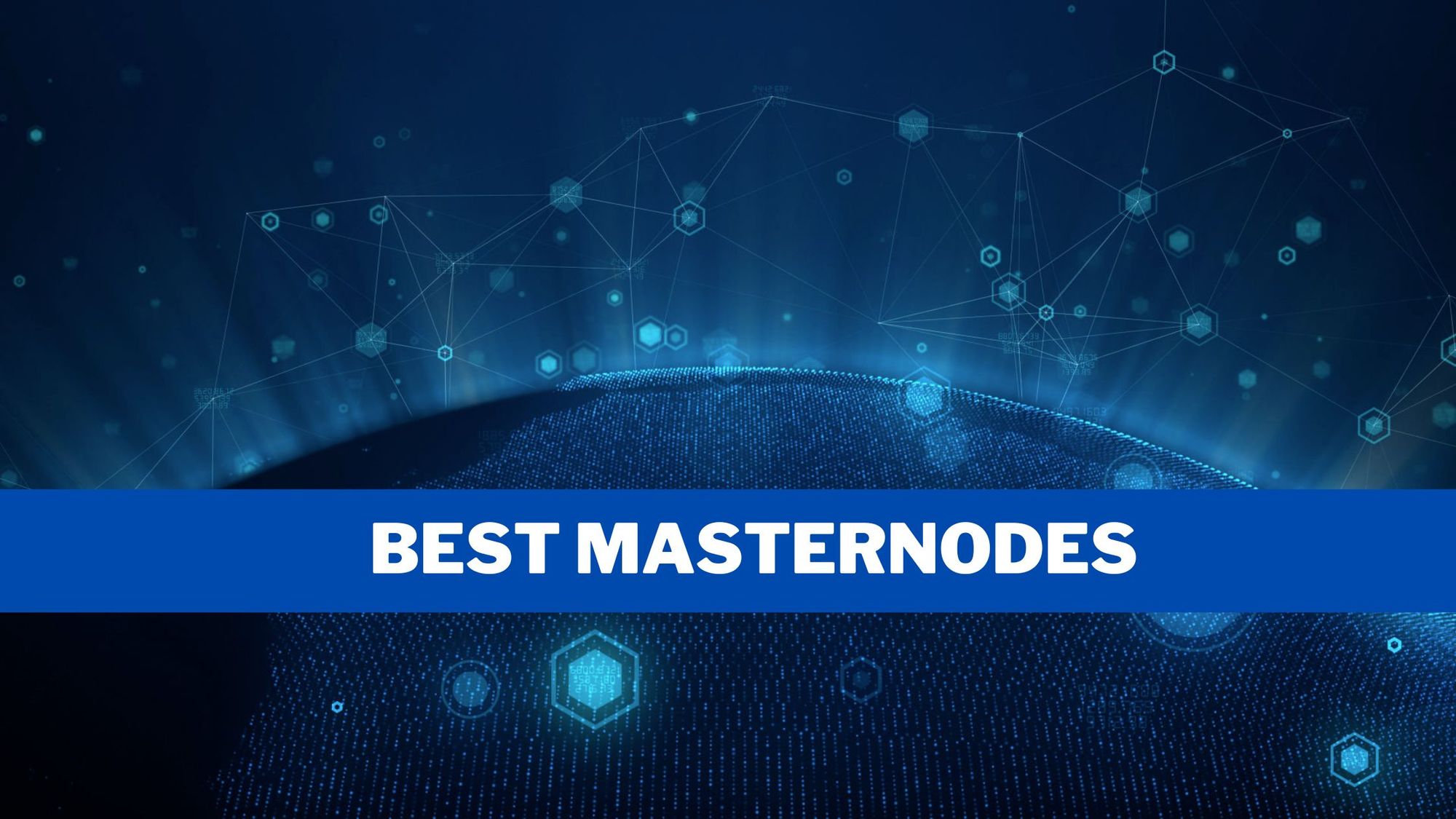What is a Masternode?
A masternode is a type of node in a blockchain network that fulfills a specific set of functions beyond those performed by regular nodes.
These functions can vary depending on the specific blockchain implementation but typically include features like:
- transaction validation,
- network governance, and
- protocol decision-making.
To become a masternode, a user typically needs to fulfill certain requirements, such as holding a minimum amount of the blockchain's native cryptocurrency and running a dedicated server that meets certain technical specifications. Once these requirements are met, the user can set up their node and begin performing the additional functions associated with being a masternode.
Masternodes can provide benefits to both the network and its operators. For example, by performing additional validation and governance functions, masternodes can help to ensure the security and stability of the network. Masternode operators may also receive rewards for their participation in the network, which can take the form of transaction fees or block rewards paid in the native cryptocurrency.
Our Choice of the Best Masternodes to Invest In:
In this section, you will find our choice of best masternodes to invest in:

What are the Best Types of Masternodes to buy?
The best type of masternodes to buy depends on your investment goals, risk tolerance, and overall investment strategy.
However, here are some categories of masternodes that are worth considering:
- Established masternode networks: Masternode networks that have been around for a while and have a strong track record of performance can be a good investment option. These networks have a proven history of generating returns and may be more stable than newer or less established networks.
- Privacy-focused masternode networks: Privacy-focused masternode networks like Dash, PIVX, and Zcoin have gained popularity in recent years due to increasing concerns about privacy and data security. These networks typically offer higher levels of anonymity and privacy than other cryptocurrency networks.
- Decentralized application (DApp) platforms: Masternode networks that support DApp development, such as Ethereum or Syscoin, can be a good investment option as they offer a wide range of potential use cases and applications.
- Masternodes with innovative features: Masternodes that offer unique or innovative features, such as instant transactions or enhanced security measures, may have an advantage in the market and be more likely to generate returns.
- Masternodes with strong communities: Masternode networks with strong and active communities can be a good investment option as they are more likely to be stable and have a strong support system in place.
It's important to note that each type of masternode carries its risks and potential rewards. It's crucial to thoroughly research and understand factors such as the underlying technology, reward structure, and market conditions before investing.
What are the Most Profitable Masternodes?
The profitability of masternodes can vary widely depending on several factors, such as:
- Market conditions,
- Demand for the native cryptocurrency,
- Number of masternodes on the network, and
- Reward structure of the specific blockchain.
That said, here are some of the most profitable masternodes based on historical performance and current market conditions:
- Dash (DASH): Dash (Masternode) is one of the most well-known and established masternode networks. Masternode operators are currently earning a monthly ROI of around 5-6%, and the network has a relatively low barrier to entry, with a minimum requirement of 1,000 Dash coins to set up a masternode.
- PIVX (PIVX): PIVX is a privacy-focused masternode network that uses a proof-of-stake consensus algorithm. Masternode operators are currently earning a monthly ROI of around 6-7%, and the network has a low minimum requirement of 10,000 PIVX coins to set up a masternode.
- Syscoin (SYS): Syscoin is a decentralized marketplace platform that uses a hybrid proof-of-work/proof-of-stake consensus algorithm. Masternode operators are currently earning a monthly ROI of around 5-6%, and the network has a relatively low minimum requirement of 100,000 SYS coins to set up a masternode.
- Zcoin (XZC): Zcoin is a privacy-focused masternode network that uses a proof-of-work consensus algorithm. Masternode operators are currently earning a monthly ROI of around 7-8%, and the network has a minimum requirement of 1,000 XZC coins to set up a masternode.
How to Find the Best Cheap masternode?
Investing in a cheap masternode can be a good strategy for investors who want to get exposure to the masternode market without committing a large amount of capital upfront.
However, it's important to note that the cheapest masternodes may not always be the best investment opportunity, and it's important to conduct thorough research and analysis before making any investment decisions.
Here are some factors to consider when evaluating cheap masternode investment opportunities:
- Project fundamentals: Evaluate the overall strength and potential of the project underlying the masternode. Look at factors like the project's use case, team, community support, and overall market potential.
- Masternode requirements: Consider the specific requirements for running a masternode on the network, such as the minimum amount of cryptocurrency required and technical specifications for the server. Make sure you have the necessary resources and expertise to run a masternode on this network.
- Reward structure: Analyze the reward structure of the masternode network, including the amount and frequency of rewards paid out to masternode operators. Consider whether the rewards are sufficient to offset the costs and risks associated with running a masternode.
- Network stability: Evaluate the stability and security of the masternode network, including factors like the number of masternodes on the network, the decentralization of the network, and the overall security of the underlying blockchain technology.
- Market conditions: Consider the overall market conditions for the native cryptocurrency and the broader cryptocurrency market. Look at factors like price trends, trading volume, and market sentiment to determine whether the investment opportunity is likely to be profitable in the current market environment.
- Risks and potential rewards: Evaluate the risks and potential rewards associated with the investment opportunity. Consider factors like regulatory risks, market volatility, and competition from other masternode networks.
By considering these factors, you can make a more informed decision when evaluating cheap masternode investment opportunities.
How do Masternodes Earn Passive Income?
Masternodes can earn passive income in several ways:
- Block rewards: Many blockchains reward masternodes with a portion of the block rewards generated on the network. This is typically a set amount of the native cryptocurrency paid out to masternode operators at regular intervals (e.g., every day, every week, or every month).
- Transaction fees: Masternodes may also receive a portion of the transaction fees generated on the network. This can vary depending on the specific blockchain and its governance rules.
- Voting rights: Some blockchains give masternodes the ability to vote on proposals or changes to the network. Masternode operators may receive rewards for participating in these votes.
- Staking rewards: In some cases, masternodes may be required to hold a certain amount of the native cryptocurrency as collateral in order to participate in the network. This is known as staking, and masternode operators may receive rewards for staking their coins.
- Service fees: Some masternodes offer additional services to users on the network, such as instant transactions or increased privacy features. Masternode operators may charge service fees for these features, which can generate additional passive income.
It's important to note that the amount of passive income generated by a masternode can vary depending on a variety of factors, including the specific blockchain, the number of masternodes on the network, and the amount of cryptocurrency held by each masternode. Additionally, running a masternode typically requires a significant investment of time and money, so it's important to carefully consider the risks and potential rewards before investing.
How to Buy a Masternode?
Buying a masternode typically involves a few key steps:
- Choose a blockchain: First, you'll need to choose a blockchain that supports masternodes. Some popular options include Dash, PIVX, and Syscoin, but there are many others available as well.
- Check requirements: Next, you'll need to check the specific requirements for running a masternode on that blockchain. This may include factors like the minimum amount of cryptocurrency you need to hold, technical specifications for your server, and other factors.
- Purchase cryptocurrency: Once you know the requirements for the blockchain you've chosen, you'll need to purchase the appropriate amount of cryptocurrency. This can typically be done through a cryptocurrency exchange, using fiat currency or another cryptocurrency.
- Set up your masternode: Once you have the required amount of cryptocurrency, you'll need to set up your masternode according to the specifications of the blockchain you've chosen. This may involve installing specific software, configuring your server, and verifying your node's status on the network.
- Earn rewards: Once your masternode is up and running, you'll be eligible to earn rewards for your participation in the network. These rewards may take the form of transaction fees or block rewards paid in the native cryptocurrency.
It's important to note that running a masternode can be a technical and complex process, so it's important to do your research and ensure that you have the necessary knowledge and resources before getting started. Additionally, masternodes often require a significant investment of time and money, so it's important to carefully consider the risks and potential rewards before investing.

